RESPECT Workshop Viet Nam: Framework boosts progress on Preventing Violence against Women and Girls
Date:
Author: Jocelyn Pederick
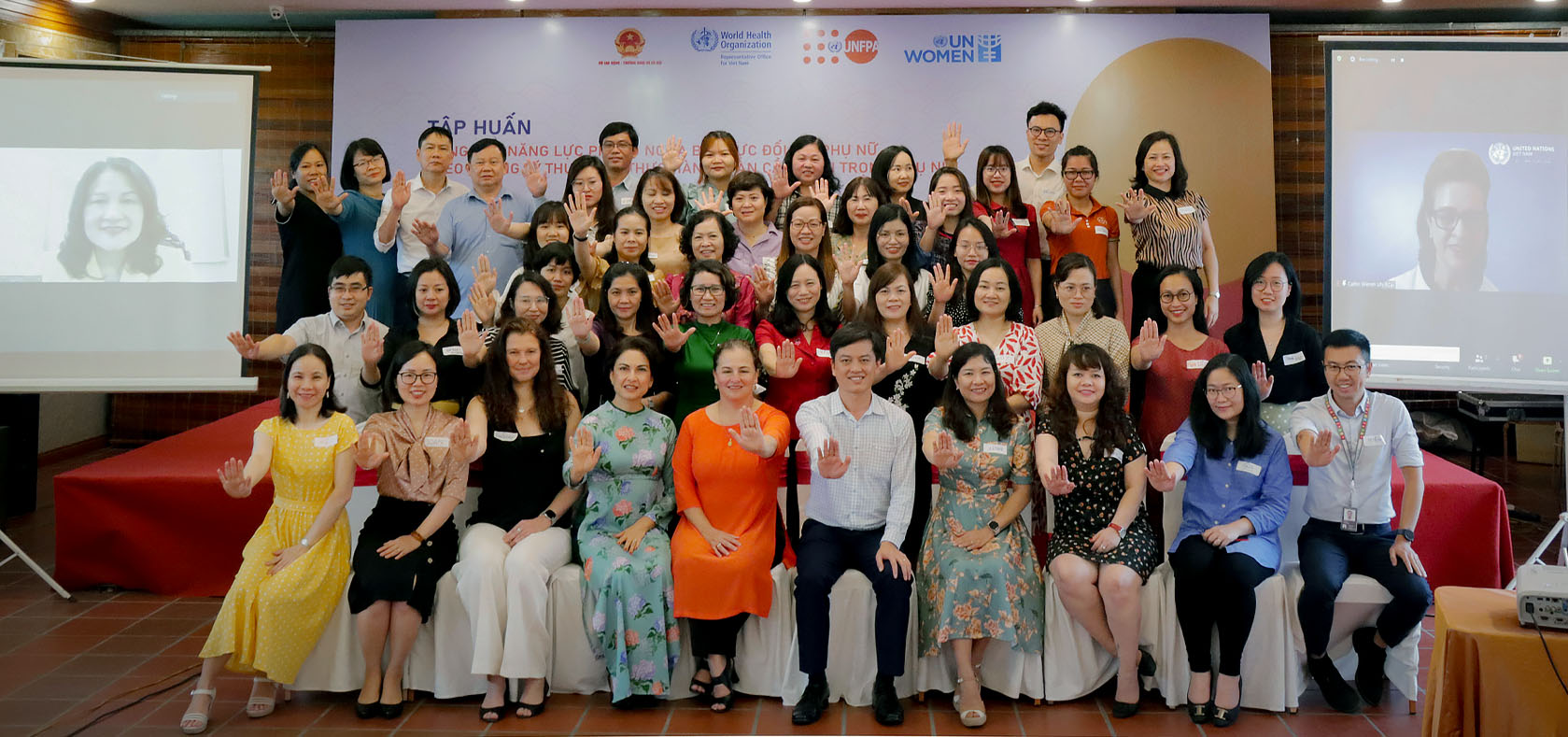
Nearly two-thirds of women and girls in Viet Nam have experienced gender-based violence, with only 10 per cent seeking help or support. The Viet Nam National Study on Violence Against Women, conducted in 2019, shows that violence against women and girls (VAWG) is a massive and underreported issue in the lives of women and girls. Therefore, preventing violence before it starts is crucial.
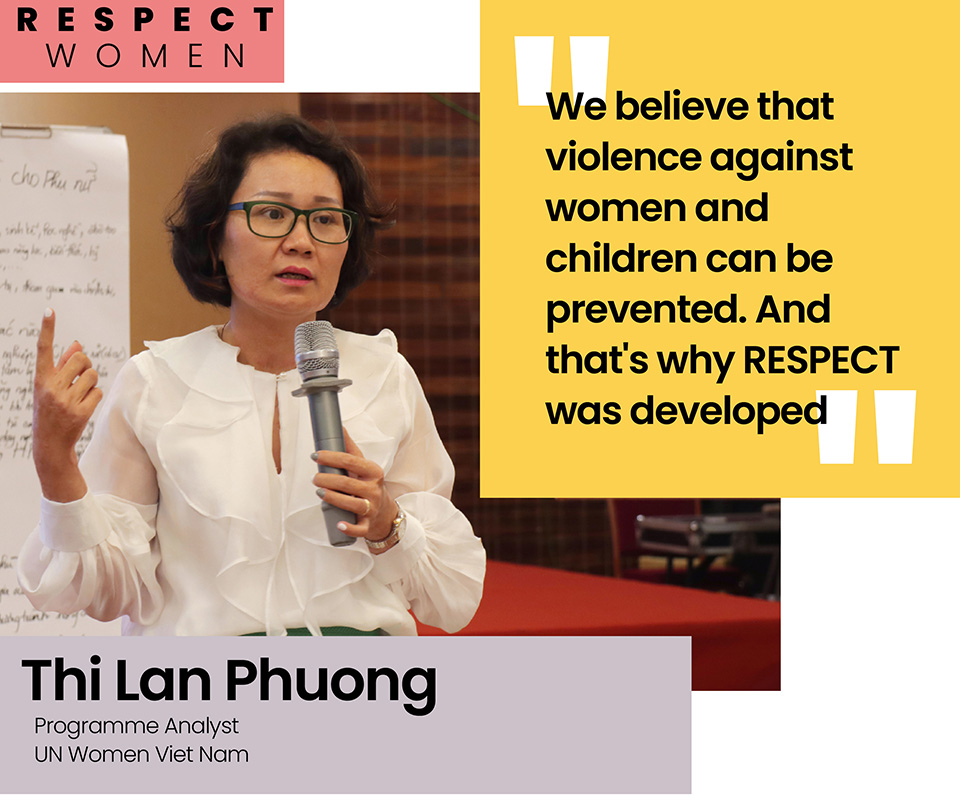
UN Women and partners continue to accumulate evidence, both globally and from the region, that confirms VAWG is preventable and that the prevalence of violence can be reduced within three to five years. UN Women has been bringing this evidence to policymakers, services and civil society organizations (CSOs) working in this critical area with one clear message: Ending violence against women is possible.
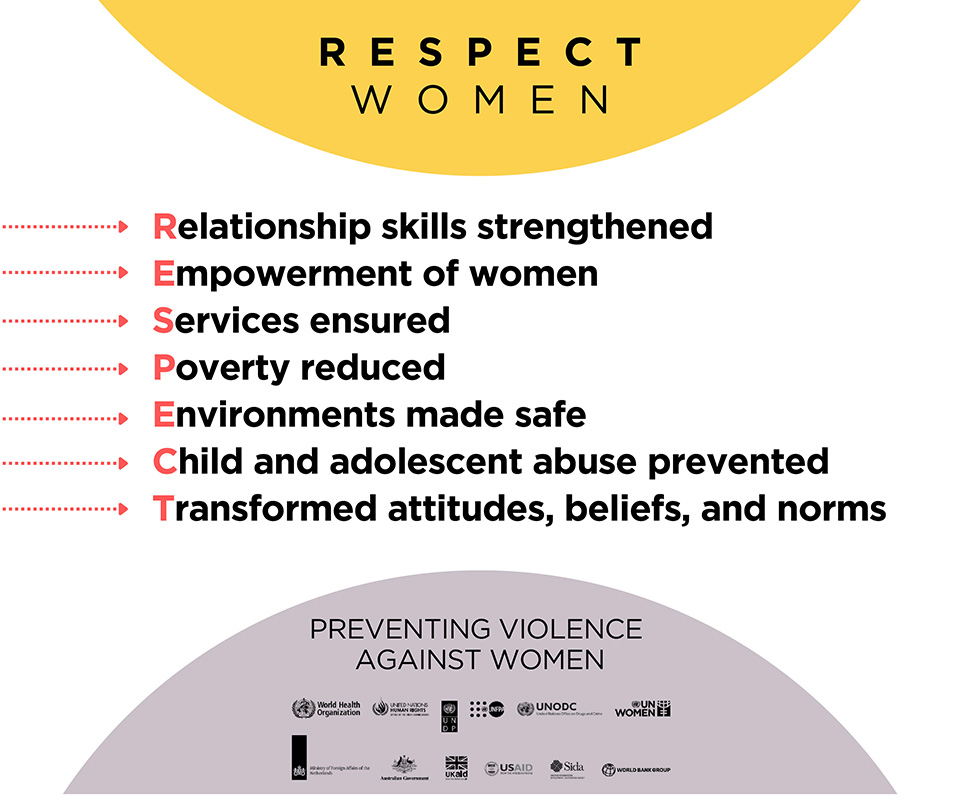
In May 2022, UN Women, the UN Population Fund (UNFPA) and the World Health Organization (WHO), in collaboration with the Viet Nam Ministry of Labour, Invalids and Social Affairs (MoLISA), gathered 50 Participants from 20 provinces to launch the RESPECT Women: Preventing Violence against Women Framework.
Viet Nam government officials from health, policing, labour, and education joined with representatives from the Viet Nam Women's Union, local government and a range of non-governmental organizations to learn about this evidence-based approach to preventing violence against women and girls.
"All of the countries in Asia and the Pacific region experience a high prevalence of violence against women,” says Thi Lan Phuong, a programme analyst from UN Women Viet Nam. “Based on the analysis of the root causes and contributing factors, we believe that violence against women and children can be prevented. And that's why RESPECT was developed."
The RESPECT Framework, developed by UN Women in collaboration with the WHO, is essentially a 'how to' of prevention methodology. It is the culmination of practice and research on prevention from across the globe. Founded on the principles of respect and equality, the R-E-S-P-E-C-T program covers seven areas: Relationship skills strengthened; Empowerment of women Services ensured; Poverty reduced; Environments made safe; Child and adolescent abuse prevented; and Transformed attitudes, beliefs, and norms.
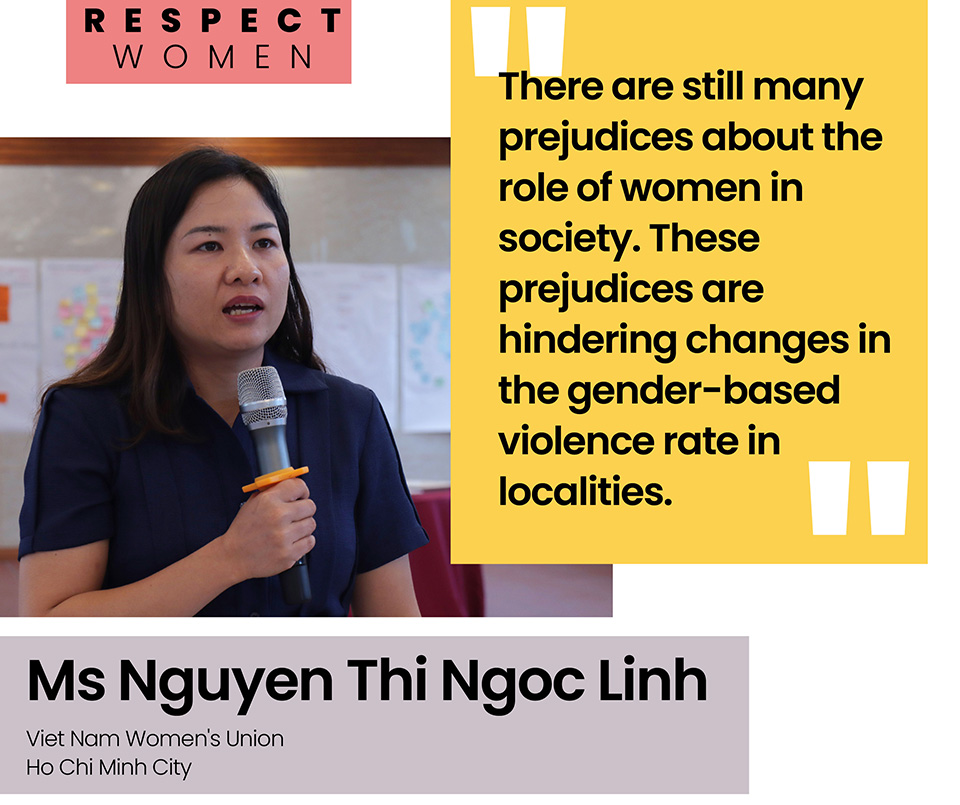
“RESPECT is a distillation of the best of what we know now about prevention,” says Melissa Alvarado, Ending Violence Against Women programme manager for the UN Women Regional Office for Asia and the Pacific. “It consolidates where the field of prevention of violence against women and girls is globally and presents it in a very digestible way.”
At the three-day RESPECT training event in May, the focus was to empower the participant’s understanding of prevention work. For many participants, the RESPECT strategies made much sense, with individual plans corresponding differently for different contexts. For those in social work, the need to connect survivors with services and the community resonated. For women-centred organizations, the importance of agency and social change rang true.
Nguyen Thi Ngoc Linh from Ho Chi Minh City Women's Union said: “Strategy T [Transformed attitudes, beliefs, and norms] is the one that the Women's Union can apply more strongly. There are still many prejudices about the role of women in society. These prejudices are hindering changes in the gender-based violence rate in localities.”
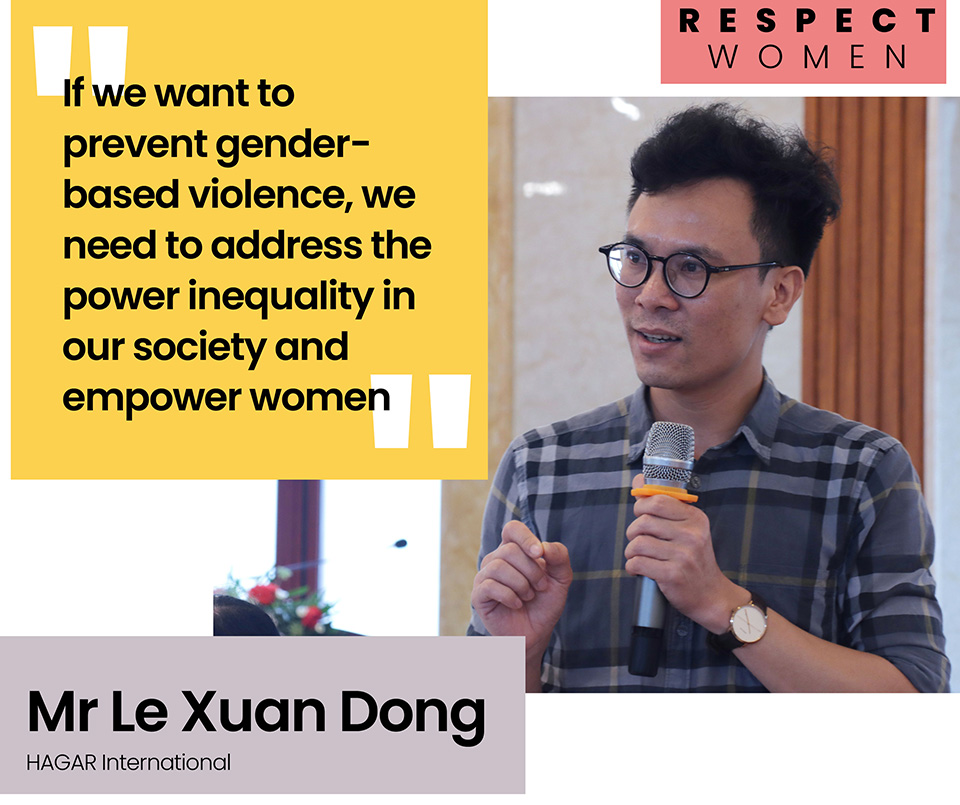
Le Xuan Dong, of Swiss-based humanitarian group HAGAR International, said, “I was most interested in Strategy E - Empowering women. If we want to prevent gender-based violence, we need to address the power inequality in our society and empower women.”
A full day of the training workshop was dedicated to evidence gathering and monitoring, and evaluation as centrally crucial in prevention work. This workshop also showcased a new guide called Making Progress in Prevention Possible, a framework with techniques for monitoring progress on prevention on a national level.
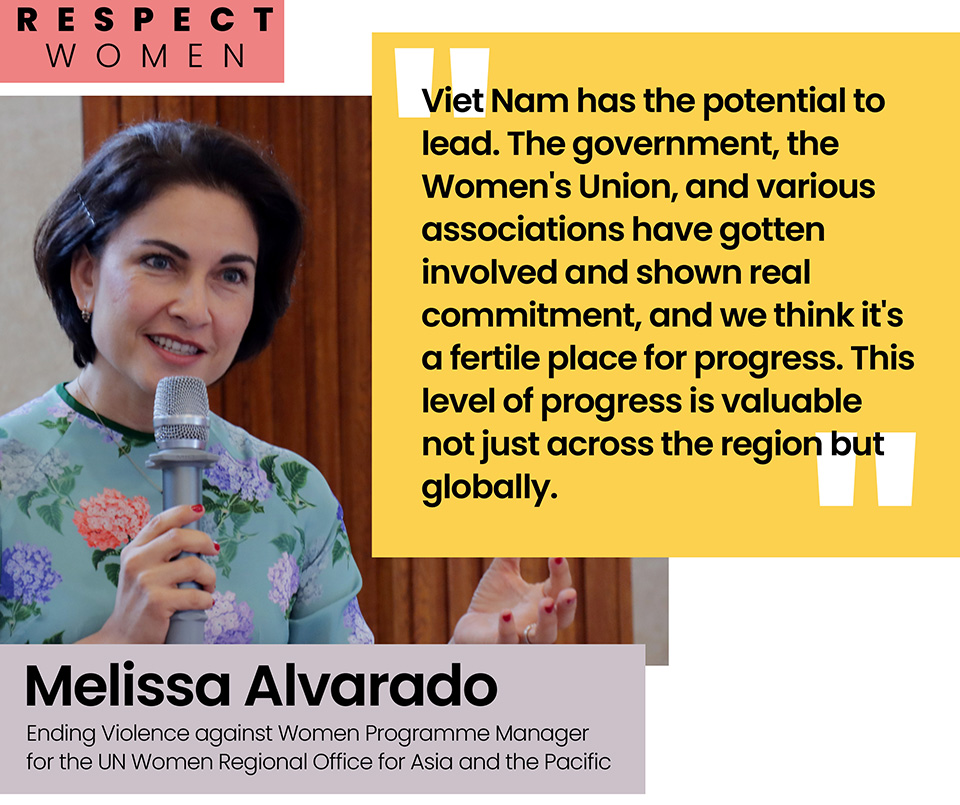
Melissa Alvarado said: “Unless we're able to produce evidence from our interventions, we won't know if we're on the right track with what we're doing. We’re trying to slowly hone in on prevention measures that are proven through the evidence to work.”
Tran Bich Loan, of MoLISA’s Gender Equality Department, shared in her closing remarks: "As both a member of the organizing committee and a participant, I am inspired and motivated to continue this challenging work."
Thi Lan Phuong believes that the RESPECT training will shape future prevention work in Viet Nam. "Prevention is challenging work. But after the training, I could see the government and our CSO partners propose a more strategic way of approaching prevention programming. They also focus more on evidence and how to monitor their programmes effectively.”
The UN Women Viet Nam country office will continue to provide guidance and support to all who participated in the training. Melissa Alvarado is hopeful that Viet Nam will take on further leadership in prevention work in the region. "Viet Nam has the potential to lead. The government, the Women's Union, and various associations have gotten involved and shown real commitment, and we think it's a fertile place for progress. This level of progress is valuable not just across the region but globally."
The RESPECT implementation package and Making Progress in Prevention Possible can be found online.
See also: